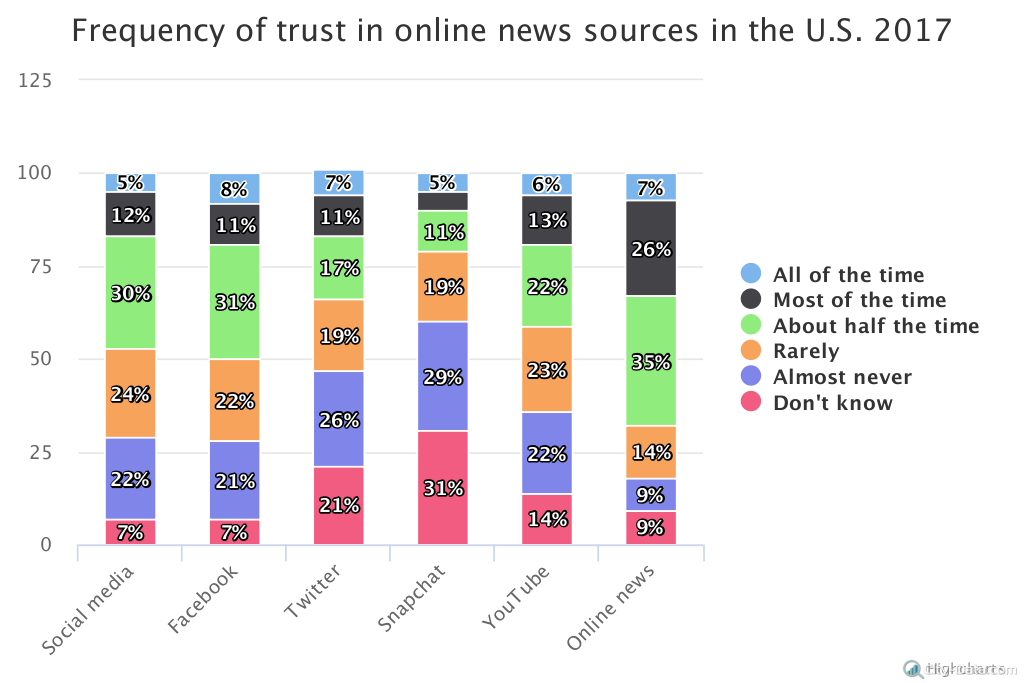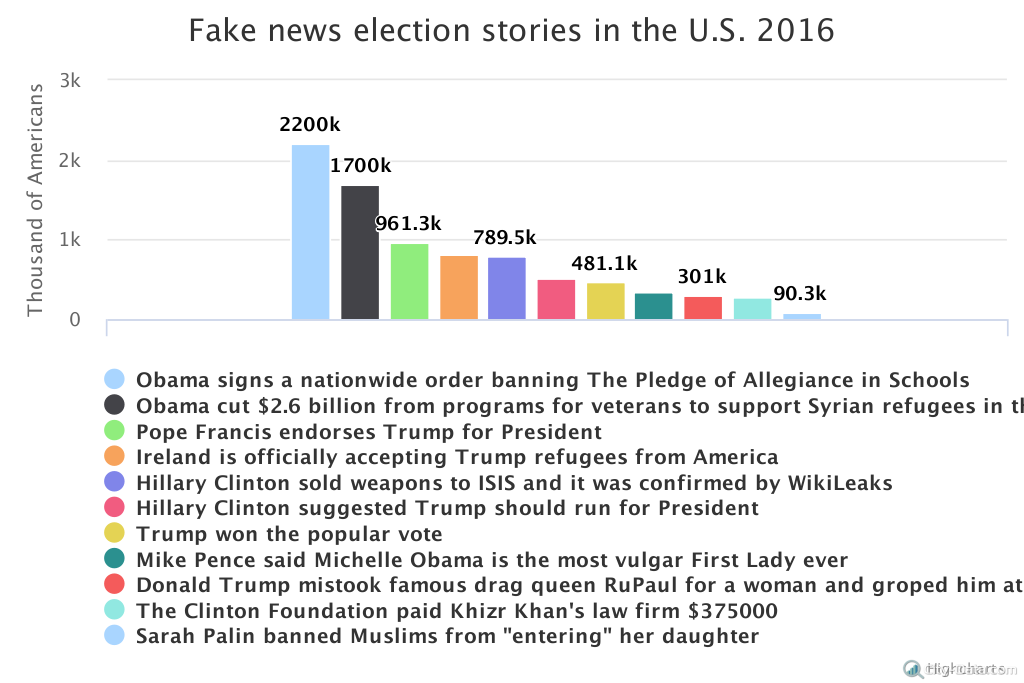Pavel Prikhodko, Ph.D. Machine Learning
As we saw in a previous article about digital news, there are many sources for the news today, including public social media. But are they actually true? According to a survey conducted by BuzzFeed in 2017, about 5 percent of respondents in the United States always trusted the news they saw on social media. The largest share of the respondents (31 percent) said that they trusted news on social media about half the time, while 28 percent of the respondents stated that they rarely trusted news on social media. Interestingly, 17 percent of respondents almost never trusted the news they saw on social media. Around 10 percent of people trusted news on social media most of the time.

Last year held many surprises, and a big one (if not the biggest) was the Presidential election. It was also the year of many fake news and fake election stories in the United States. Let’s have a quick look at the information about popular fake stories in 2016 based on Facebook engagement. The fake story that President Obama had signed a nationwide order banning the Pledge of Allegiance in schools in the country was reacted to, shared and commented on a total of 2.2 million times on Facebook.
Another story which claimed that President Obama cut $2.6 billion from programs for veterans to support Syrian refugees in the United States was shared, reacted to and commented on 1.7 million times on Facebook in the three months leading up to the election. The fake news that Pope Francis endorsed Donald Trump for President attracted more than 961,000 shares or comments on Facebook.

According to the statistics, about 31 percent of people in the U.S. stated that they saw fake news on social media websites more than once per day. So, while social media can be very useful, we can’t always say the same about about news there.
About Pavel Prikhodko
Pavel Prikhodko, Ph.D. Machine Learning
Pavel has worked for many years as a researcher and developer on a wide range of applications (varying from mechanics and manufacturing to social data, finance and advertising), building predictive systems and trying to find stories that data can tell.
In his free time, he enjoys being with his family.
Other posts by Pavel Prikhodko:

I trust John Oliver, WSJ, Time magazine, Late Show Noah Trevor,
Lewis Black, Stephen Colbert, Sierra club, Neil Degasse Tyson the US Navy, US Marine Corp and God,